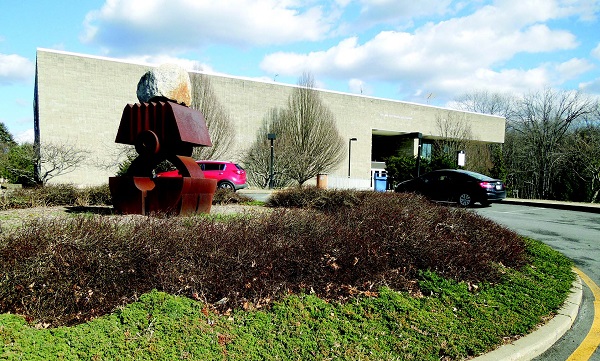

talent in their performance of “Our Town.”
Photo Credit / Lauren Shook
By Nia Scott
Staff Writer
On the Sunday following Saturday’s Homecoming football game, I attended a showing of “Our Town,” a play presented by ESU’s Department of Theatre at the Smith-McFarland Theatre in the Fine & Performing Arts Center.
“Our Town” is a play that was written by Thornton Wider and premiered in 1938.
The play tells a story of a fictional town called Grover’s Corner in New Hampshire. The play follows the town’s inhabitants from May 7, 1901 to the Summer of 1915 through three acts.
ESU’s Department of Theatre performed the play on four separate dates; Oct. 13, 14 and 15 at 7:30 p.m., and Oct. 16 at 2 p.m.
The first Act began promptly at 2 p.m. In the first Act, we were introduced to the people of Grover’s Corner. The Stage Manager played by Nicholas Kwietniak introduced the other actors of the play and the walked the audience through the town.
Kwietniak had the unique role of speaking to the audience and setting up the different scenes. He also filled in on some of the roles of the townspeople.
The story focuses on two neighboring families, the Webbs and the Gibbs. The play does not include many props, so the stage was mostly bare. The actors had to mime their actions since there were not many props.
Despite that, the actors did an amazing job with their performance and sometimes you almost forgot there were no props.
The first Act is called “Daily Life,” and presents the daily lives of the various people living in Grover’s Corner. Kwietniak begins by talking about the town and the people who live there in 1901. He brings out Professor Willard played by Ian G. Sallit, to explain some of the history of Grover’s Corner.
There are a few more characters introduced, like Joe Crowell, the paperboy played by Matthew Gottlieb and Hattie Newsome, the milk deliverer played by Alexis Truijllo.
Then we are introduced to the Webb family and The Gibbs family.
The Webb family includes Mrs. And Mr. Webb, played by Sophia Grace Thompson and Joshua Weidenbaum, and their children Wally and Emily Webb, played by Cory M. Oswald and Angelica Ramirez.
The Gibbs family includes Dr. Gibbs and Mrs. Gibbs, played by John Lauri and Jenna Worrel, and their children, George and Rebecca Gibbs, played by Matthew Namik and Kimberly Rauscher.
The Second Act begins after a 10-minute intermission and is called “Love and Marriage.”
The plot begins with the same actors, but now three years have passed and George Gibb is marrying Emily Webb. The whole town attends the wedding between the two families.
The act also includes a scene from the past showing the moment George and Emily realized their love for each other.
Kwietniak continues his narration of the play and often stops the play to address the audience. There is a moment when both George and Emily second guess their decision to get married, but their parents intervene and give them words of encouragement.
The last act is called “Death and Dying.” At this point, nine years have passed. The final act begins with the funeral of Emily Gibbs. Due to complications from child birth, she is joining other people from Grover’s Corner that have passed during the past nine years.
Once the funeral ends, Emily decides, against the warnings of the other dead, to relive one day of her life. She chooses to relive her twelfth birthday, but is deeply upset by the memory. She asks The Stage Manager if anyone understands the value of life while they’re alive. He replies no and that maybe only saints and poets realize it.
As the play comes to an end, it makes you wonder if we do appreciate life, or if we don’t realize the value of life until it’s gone.
Overall, the play was fantastic.
ESU’s department of theatre did an amazing job. The actors could be clearly heard and did a great job acting as if they had props.
I really enjoyed the show and can’t wait for the next performance.
Email Nia at:
nscott5@live.esu.edu
